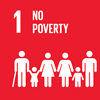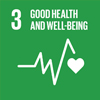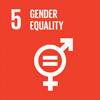
UGM economist Wisnu Setiadi Nugroho, S.E., M.Sc., Ph.D., said the poverty rate in Indonesia has decreased. However, the number of poor people remains high, and economic vulnerability is expanding to include the middle class. The number of vulnerable poor remains high, and this group is generally at risk of falling into poverty when faced with an economic shock.
Based on data from the 2023 National Socio-Economic Survey (Susenas), the poverty line (GK) was recorded at IDR 550,458 per capita per month. More than 25 million people still live below the poverty line, around 90 million are classified as near poor, and 115 million are considered vulnerable to falling into poverty.
“This phenomenon shows that economic growth in Indonesia has not been inclusive or pro-poor. In this context, the upper middle class continues to grow wealthier, while the lower middle class is left behind and unable to share in the prosperity. Thus, the gap between social classes widens,” Wisnu explained in the Economic and Business Journalism Academy, which raised the issue of the National Socio-Economic Survey: Poverty (Central Bureau of Statistics) at FEB UGM, Monday (14/4/2025). Journalists from various media outlets attended the discussion, examining the issue of poverty from multiple perspectives.
Citing Satriawan and Nugroho (2024), Wisnu explained that Indonesia’s growth dominates trickle-down growth. Only 11 provinces have pro-poor or strongly pro-poor growth at the provincial level. Meanwhile, 18 provinces are still experiencing trickle-down growth, where the benefits of economic growth are proportionally less for people experiencing poverty than for the non-poor. Then, seven provinces experienced immiserizing growth, where the benefits of economic growth were allegedly enjoyed only by groups of non-poor people, creating enormous inequality.
The coordinator of EQUITAS (Equitable Transformation for Alleviating Poverty and Inequality) said that the middle class in urban areas is facing pressures related to the high cost of living. Meanwhile, with stagnant incomes, this middle-class group has the potential to fall into the vulnerable or emerging middle-class category.
Vishnu also highlighted that the population growth is more from the lower middle class, which ultimately adds to the economic burden of households and pushes up the poverty rate. Status degradation is also evident in the absence or lack of graduation from support programs such as PKH, which does not encourage community independence. Some programs have also failed to use more recent data, making much of the assistance off-target.
“Many recipients continue to receive assistance even though they are no longer eligible. This shows that there is inappropriate targeting of programs and also a lack of upward mobility. In addition, many middle-class people are beginning to feel pressure (due to layoffs, economic and health shocks, etc.) to receive assistance programs,” he added.
Sekolah Rakyat is Prone to Labelization
The government recently launched Sekolah Rakyat to address the long-term challenge of intergenerational poverty. This free boarding school for students from low-income families aims to promote upward mobility by providing access to quality education.
Wisnu believes the Sekolah Rakyat program is a good strategy for alleviating poverty. However, Sekolah Rakyat is vulnerable to stigmatizing its graduates. Moreover, there are concerns that this program may hinder graduates from effectively socializing and adapting at the higher education level.
“There still needs to be a mechanism so that children do not feel labeled or discriminated against because of their economic background. Even though they may be bright kids who are just economically disadvantaged,” he said.
Learning from China
Vishnu added that the biggest challenge to poverty reduction is the large number of people who depend on the informal sector, with irregular incomes, no social security, and vulnerability to economic shocks.
“Social programs alone are not enough if improvements in the economic structure do not accompany them,” he said.
He cited the example of China, which has drastically reduced poverty through pro-poor industrialization. Although China does not have a comprehensive poverty reduction program like Indonesia, it dares to make significant investments in the manufacturing sector in a planned way.
“China dares to open factories with massive employment and pay workers a living wage above the poverty line,” Wisnu added.
Free Nutritious Meal Must Hit the Right Target
On this occasion, Wisnu also highlighted the Free Nutritious Meal (MBG) program implemented by the administration of President Prabowo Subianto. According to him, the program can help reduce poverty in the country if properly implemented.
According to Wisnu, the MBG program should not be distributed equally to all schoolchildren. For efficiency and budget savings, this program should be targeted at children from underprivileged families to be effective and appropriately targeted.
He cited the example of the free nutritious meals program in the United States. This program provides healthy meals to underprivileged children through a direct transfer system through school cafeterias. This approach is much more efficient and helps reduce bullying of students who receive the program.
Wisnu also hopes the MBG program can be implemented in a decentralized manner, with oversight from the central government, particularly in establishing national nutrition standards. Through decentralization, local economic growth can be promoted through the involvement of MSMEs (Micro, Small, and Medium Enterprises) and the empowerment of village-owned enterprises (BUMDes).
Report: Shofi Hawa Anjani
Editor: Kurnia Ekaptiningrum
Sustainable Development Goals














